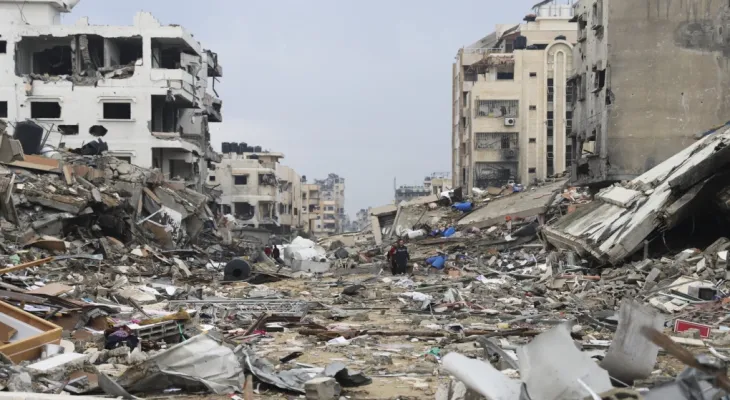Search here
Newspaper
Search here

Arab Canada News
News

Published: July 14, 2024
The Hamas movement announced today, Sunday, that the ceasefire negotiations in Gaza are ongoing and that the military leader of the movement is in good health, following a day after the Israeli army targeted Mohammed Deif in a massive airstrike that local health officials said resulted in the deaths of at least 90 people, including children.
Deif's status remained unclear after Israeli Prime Minister Benjamin Netanyahu said on Saturday night that "there is no absolute certainty" about his death. Hamas representatives did not provide any evidence to support their claims regarding the health of the chief engineer of the October 7 attack that ignited the war.
The Israeli army announced on Sunday that Raef Salameh, one of Hamas's leaders who was described as one of Deif's closest aides, was killed in a strike on Saturday. Salameh was leading Hamas's Khan Younis Brigade. The statement did not provide any update on Deif, who has long topped Israel's most-wanted list and has been hiding for years.
Hamas rejected the idea of suspending ceasefire talks through mediation after the strike. Government spokesman Jihad Taha said: "There is no doubt that the horrific massacres will affect any efforts in negotiations," but he added that "the efforts and endeavors of the mediators are still ongoing."
Deif's death would mark the largest assassination of any Hamas leader by Israel since the war began. It would be a significant victory for Israel and a profound psychological blow to the armed group. Netanyahu stated that all Hamas leaders "are condemned to death," affirming that their elimination would bring Hamas closer to accepting a ceasefire agreement.
Hamas political officials insisted that communication channels remained effective between the leadership inside Gaza and abroad after the strike that occurred in the south of the territory. Witnesses said the attack took place in an area that Israel classified as safe for hundreds of thousands of displaced Palestinians. The Israeli army did not confirm this.
Some survivors felt angry on Sunday that the attack targeting Deif occurred without prior warning in an area they were told was safe.
Mohammed Abu Yassin, who said he heard two airstrikes and grabbed his children before waking up in the hospital to find his son had died, added that the family had already been displaced five times since the war began. "Where are we supposed to go?"
A United Nations official described the overwhelming chaos at Nasser Hospital, where victims of Saturday's strike were taken, with many being treated on blood-stained floors amid limited supplies.
Scott Anderson said in a statement: "I have witnessed some of the most horrific scenes I have seen in the nine months I have spent in Gaza." "I saw young children with amputated limbs, disabled children unable to receive treatment, and others separated from their parents. I also saw mothers and fathers unsure if their children were alive." He noted that the restrictions on humanitarian aid to Gaza hinder efforts to provide medical and other necessary care.
At least 300 people were injured in the airstrike, one of the deadliest attacks in the ongoing nine-month war ignited by Hamas's October 7 attack on southern Israel that resulted in approximately 1200 deaths, mostly civilians, and the abduction of over 200 hostages.
More than 38,400 people have been killed in Gaza in the Israeli airstrikes and ground attacks since then, according to the health ministry in the territory. The ministry does not differentiate between fighters and civilians in its count.
On Sunday, an Israeli airstrike on Nuseirat in central Gaza resulted in at least 13 deaths at the school gate, according to Associated Press reporters at Al-Awda Hospital. The Israeli army stated in a statement that it targeted "terrorists" operating in the area of a school run by the United Nations Relief and Works Agency for Palestine Refugees.
Also on Sunday, police announced that a Palestinian from East Jerusalem carried out a car-ramming attack in central Israel that injured four Israelis, two of whom were in serious condition. Israeli border police at the scene shot and killed the attacker after he struck individuals waiting at bus stops on a busy road.
Israeli Commissioner Kobi Shabtai stated that such attacks are often "driven" by events like the airstrike that took place on Saturday in Gaza.
Comments